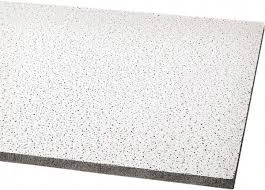Nov . 29, 2024 15:00 Back to list
High-Performance Rigid Mineral Wool Insulation Boards for Energy Efficiency and Soundproofing
Exploring Rigid Mineral Wool Insulation Board Benefits and Applications
Insulation plays a crucial role in enhancing energy efficiency, regulating temperature, and improving the overall performance of buildings. Among various insulation materials available in the market, rigid mineral wool insulation boards have gained significant popularity. This article delves into the properties, benefits, and applications of rigid mineral wool insulation boards, highlighting why they are a preferred choice for many construction projects.
What is Rigid Mineral Wool Insulation Board?
Rigid mineral wool insulation boards are made from inorganic materials, primarily basalt rock and recycled industrial materials. The production process involves melting these materials at high temperatures and then spinning them into fibers. These fibers are then compressed into rigid boards. The inherent properties of mineral wool, such as its thermal insulation capabilities, soundproofing qualities, and fire resistance, make it an excellent choice for a range of applications.
Key Benefits of Rigid Mineral Wool Insulation Boards
1. Thermal Performance One of the primary advantages of using rigid mineral wool insulation boards is their exceptional thermal performance. They have a low thermal conductivity, which means they help maintain a stable indoor temperature, thereby reducing heating and cooling costs. This characteristic is particularly advantageous in buildings where energy efficiency is a primary concern.
2. Fire Resistance Rigid mineral wool is inherently non-combustible, making it a safe choice for various applications. It can withstand high temperatures and does not emit toxic gases when exposed to fire. This fire-resistant property is critical in both residential and commercial buildings, offering peace of mind to occupants and property owners alike.
3. Sound Insulation Noise control is becoming increasingly important in architectural design. Rigid mineral wool insulation boards provide excellent sound absorption characteristics, reducing the transmission of sound between rooms and minimizing external noise intrusion. This makes them ideal for auditoriums, offices, and residential spaces where acoustics are a concern.
4. Moisture Resistance Mineral wool insulation boards have a high resistance to moisture, which helps prevent mold and mildew growth. This is particularly beneficial in areas prone to high humidity, such as basements and bathrooms, ensuring a healthier indoor environment.
5. Sustainability As awareness of sustainable building practices grows, the demand for eco-friendly materials has increased. Rigid mineral wool insulation is produced from natural and recycled materials, making it a sustainable option. Additionally, its longevity and durability contribute to reducing waste over time.
rigid mineral wool insulation board

Applications of Rigid Mineral Wool Insulation Boards
Rigid mineral wool insulation boards are versatile and can be used in various applications, including
- Roof Insulation These boards are ideal for flat roofs, sloped roofs, and green roofs, providing excellent thermal insulation while also offering a sturdy base for roofing membranes.
- Wall Insulation They can be installed in both exterior and interior walls to improve the thermal envelope of a building, enhancing energy efficiency and comfort.
- Floor Insulation Rigid mineral wool boards provide sound insulation and thermal performance for floors, making them suitable for multi-family dwellings and commercial spaces.
- Industrial Applications In industrial settings, rigid mineral wool is often used for insulating pipes, ducts, and equipment. Its fire resistance and thermal properties are essential for maintaining process efficiency and safety.
- Soundproofing Applications Beyond traditional building insulation, these boards are commonly used in studios, theaters, and conference rooms to enhance sound quality and minimize unwanted noise.
Conclusion
Rigid mineral wool insulation boards stand out due to their exceptional thermal performance, fire resistance, sound insulation properties, and sustainability. As the demand for energy-efficient and safe building materials continues to grow, these insulation boards are becoming a staple in modern construction. Whether for residential, commercial, or industrial applications, rigid mineral wool insulation offers numerous advantages, making it a reliable choice for architects, builders, and property owners aiming for efficiency and sustainability in their projects.
-
Quality Ceiling Trap Doors & Access Panels | Easy & Secure AccessNewsAug.30,2025
-
Durable Ceiling T Grid Systems | Easy InstallationNewsAug.29,2025
-
PVC Gypsum Ceiling: Durable, Laminated Tiles for Modern SpacesNewsAug.28,2025
-
Pvc Gypsum Ceiling Is DurableNewsAug.21,2025
-
Mineral Fiber Board Is DurableNewsAug.21,2025
-
Ceiling Tile Clip Reusable DesignNewsAug.21,2025







